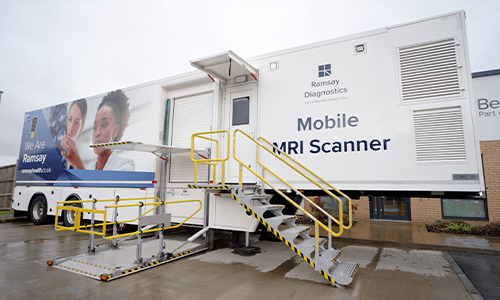An electrocardiogram (ECG) is a test to measure your heart’s electrical activity and check how it is functioning.
An ECG provides your doctor with important information about the rate and rhythm of your heartbeats, any damage to your heart, the size and position of the chambers in your heart, and your heart’s blood and oxygen supply.
Ramsay Health Care UK offers rapid access to an electrocardiogram test if you have symptoms that may suggest you have a heart problem, including chest pains and abnormal heart rhythm.
Our hospitals offer the three main types of ECG to help identify a heart problem. We use the latest technology that is operated and reviewed by highly skilled and experienced staff.
We also offer ECGs as part of your private health check-up, without any suspicion of heart disease, for peace of mind.
All Ramsay hospitals pay the utmost attention to infection control so you can visit safely.

















